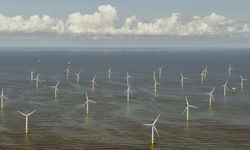The US justifies this expansion under international law, claiming the right to protect and manage resources and habitats above and below its extended continental shelf. Adhering to the 1982 UN Convention on the Law of the Sea (UNCLOS) and international customary law, the delineation of coordinates for areas 200 nautical miles from the coast is based on Scientific and Technical Guidelines.
This move has significant implications for the Arctic region, potentially escalating tensions with Russia, similar to geopolitical disputes in the South China Sea. Mead Treadwell, former lieutenant governor of Alaska, states extensive research supporting US claims, highlighting the newly controlled area's vastness.
The US assertion has unsettled Russia, raising concerns about a potential territorial conflict. Grigory Karasin from Russia's Federation Council deems the US expansion "unacceptable," and points out necessary measures for national interests in the area. President Vladimir Putin emphasizes the Arctic's strategic importance for Russia, linking economic opportunities, energy potential, logistics, and national security.
The geopolitical landscape in the Arctic unfolds with complex dynamics, impacting global trade routes and international relations. Russia, eyeing the Northern Sea Route as an alternative to the Suez Canal, is rapidly developing Arctic routes, aiming to surpass 100 million tons of cargo via the Northern Sea Route by 2030. China is also making significant strides in the Arctic, positioning itself for future transportation opportunities as ice keeps melting. New debates over the Arctic will be probably hot topics spoken about in the maritime domain soon.



